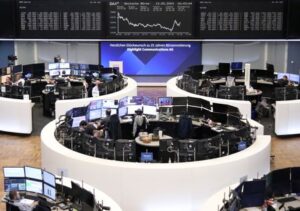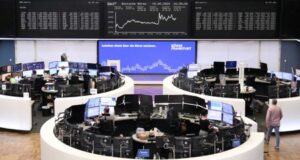U.S. stock indexes edged higher Tuesday, reversing course after a profit warning from Target cast a pall over the retail sector.
While there was ample blame to go around for the initial weakness, there wasn’t any news to account for the quick rebound effort that was waged following the opening losses.
Presumably, the main catalyst for that turnaround effort was the resilience to the opening selling activity, although some are likely to highlight the fact that the S&P 500 held above last Friday’s low (4077.43) as a call to rebound stations. A drop in the 10-yr note yield below 3.00% (currently -5 bps to 2.99%) created a bit of an opening to force the rebound effort given that the move above 3.00% yesterday created an excuse to sell into yesterday’s opening strength. In any case, the resilience fostered renewed buying interest that benefited all areas.
Even Target and Union Pacific came bounding back from larger pre-market losses.
Currently, the major indices are little changed for the session. The rebound effort has lost its momentum, but, notably, sellers have yet to launch any counterattack.
By and large, conviction is lacking on both sides of the tape at the moment. The only sector making a concerted move to the upside is the energy sector (+2.6%). It has benefited from the outperformance of Exxon (XOM), which was upgraded by Evercore ISI to Outperform from In-Line, and elevated energy costs. WTI crude futures are up 0.5% to $119.07/bbl and natural gas futures are up 0.1% to $9.33/mmbtu.
The worst-performing sector is the consumer discretionary sector (-1.2%). It has been pinched by Target and Amazon.com (AMZN), which has lost yesterday’s stock-split momentum. A report that the national average for gasoline prices has hit a record $4.92/gallon has been another factor weighing on the performance of many of the consumer discretionary stocks.
The April trade deficit narrowed nicely to $87.1 billion (consensus -$89.6 billion) from an upwardly revised $107.7 billion (from -$109.8 billion), but it wasn’t for the best of reasons.





